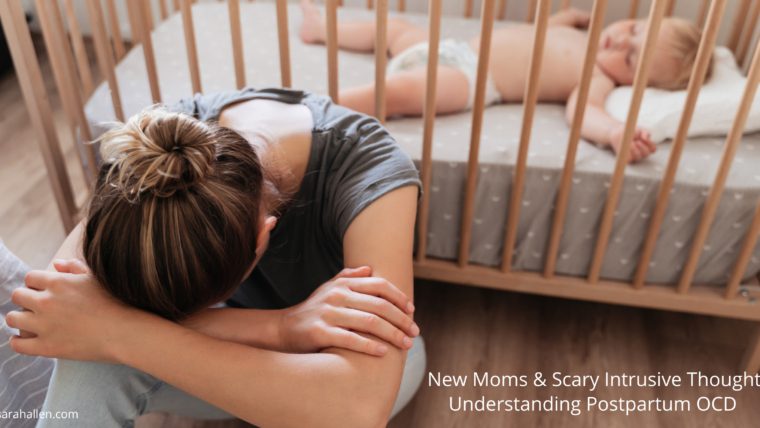Anxiety about the state of the world is common among pregnant and postpartum parents. Concerns about the economy, climate change, and social issues can cause significant stress. These worries can affect your mental health and make it harder to enjoy time with your new baby.
At the Postpartum Depression Alliance of Illinois, we understand the unique challenges that come with raising a child in uncertain times. We aim to provide you with helpful tips and resources to manage your anxiety. Let’s explore practical ways to cope with these feelings and find peace of mind.
Understanding Parental Anxiety
Symptoms of Anxiety in Pregnant and Postpartum Parents
Parental anxiety can manifest in various ways. Common symptoms include constant worry, restlessness, and a sense of dread about the future. You might also experience physical symptoms like a racing heart, muscle tension, or headaches. Difficulty sleeping or changes in appetite can also signal anxiety.
It’s important to recognize these signs early. Anxiety can impact your ability to enjoy time with your baby and even affect your overall well-being. If you find yourself frequently irritable or having trouble concentrating, these might be signs of anxiety. Understanding these symptoms can help you take proactive steps to manage your mental health.
Common Stressors in Today’s World
Today’s world presents many stressors that can contribute to parental anxiety. Worries about the economy, climate change, and social issues are common. The constant stream of news and social media updates can make these stressors feel even more immediate and overwhelming.
For many parents, concerns about their child’s future are a significant source of anxiety. Questions about education, safety, and health can weigh heavily on your mind. Understanding these common stressors can help you identify what specifically triggers your anxiety. Awareness is the first step towards managing your anxiety effectively.
Impact of Anxiety on Maternal Mental Health
How Anxiety Affects Both Parents and Children
Anxiety doesn’t just affect the person experiencing it; it impacts the entire family. When a parent is anxious, it can influence their interactions with their children. Kids can sense when their parents are stressed, making them anxious, too. This can lead to a cycle of stress within the family.
Parental anxiety can also affect your ability to bond with your baby. You might feel less present or engaged during important moments. This can affect your child’s emotional development and your relationship with them. Understanding the impact of anxiety on both yourself and your child is crucial for taking steps to manage it.
The Importance of Addressing Anxiety Early
Addressing anxiety early can prevent it from becoming more severe. Early intervention can improve your quality of life and ensure a healthier environment for your children. Ignoring anxiety can lead to longer-term mental health issues, making it harder to manage down the line.
Taking proactive steps to address anxiety can also set a positive example for your children. It shows them the importance of mental health and self-care. Seeking support and utilizing resources can help you manage anxiety more effectively. The sooner you address it, the better the outcome for both you and your family.
Practical Tips for Managing Anxiety
Creating a Calming Routine
Having a calming routine can help reduce anxiety. Start by setting a regular sleep schedule. Try to go to bed and wake up at the same time each day. This helps regulate your body’s natural clock and improves sleep quality. Incorporate calming activities into your daily routine, such as reading or taking a warm bath before bed.
Exercise can also be part of your calming routine. Physical activity releases endorphins, which can boost your mood and reduce stress. Even a short walk can make a big difference. Find activities that you enjoy and make time for them every day. Consistency is key to making these activities a helpful part of your routine.
Mindfulness and Relaxation Techniques
Mindfulness and relaxation techniques can provide immediate relief from anxiety. To calm your mind and body, practice deep breathing exercises. Sit in a quiet place, close your eyes, and take slow, deep breaths in and out. This helps slow your heart rate and reduce feelings of stress.
Meditation is another effective technique. Spend a few minutes each day focusing on your breath or a simple phrase. Guided meditations can be found online and can help you get started. Progressive muscle relaxation, where you tense and then relax different muscle groups, can also help reduce tension and promote relaxation.
Setting Boundaries with News and Social Media
Excessive exposure to news and social media can increase anxiety. Set specific times to check the news and avoid it right before bed. Limit your social media use to a few times a day. Unfollow accounts that make you feel more anxious.
Focus on positive content to create a balanced media diet. Follow accounts that inspire and uplift you. Engage in offline activities like reading, hobbies, or spending time with family. Setting these boundaries can help you stay informed without feeling overwhelmed.
Resources for Support
Local and Online Support Groups
Connecting with others who understand what you’re going through can be very reassuring. Local and online support groups provide a safe space to share experiences and learn from others. Look for groups specifically for pregnant and postpartum parents. These groups can offer emotional support and practical advice.
Joining a group can help you feel less isolated. You’ll meet others who are dealing with similar anxiety and stress, and this sense of community can be very comforting. Many groups also have online forums or virtual meetings, making it easy to participate from home.
Professional Help and Counseling Options
Sometimes, professional help is necessary to manage anxiety. Therapists and counselors can provide techniques and strategies to help you cope. Cognitive-behavioral therapy (CBT) is often effective for anxiety. It focuses on changing negative thought patterns and behaviors.
Don’t hesitate to seek help if you need it. Professional support can offer you the tools to manage your anxiety more effectively. Many therapists specialize in maternal mental health and can provide individualized care that addresses your specific concerns.
Community Resources and Hotlines
Many community resources and hotlines can provide immediate support. Local health departments often offer resources for maternal mental health. Hotlines provide confidential support and can connect you with local services.
Keep a list of resources handy. Knowing where to turn in times of need can provide peace of mind. Utilize these resources to get the support you need when you need it. You don’t have to manage anxiety alone; help is available.
Conclusion
Managing parental anxiety about the state of the world is crucial for your well-being and your family’s health. Recognizing the symptoms and understanding the stressors can help you take the first steps toward managing your anxiety. Practical tips like creating a calming routine, practicing mindfulness, and setting boundaries with media can make a significant difference.
Support from local and online groups, professional counseling, and community resources can provide the help you need. Remember, you’re not alone in this journey. The Postpartum Depression Alliance of Illinois supports you every step of the way. If you’re struggling, reach out to us for more information about what helps or contact us for email or phone support.




